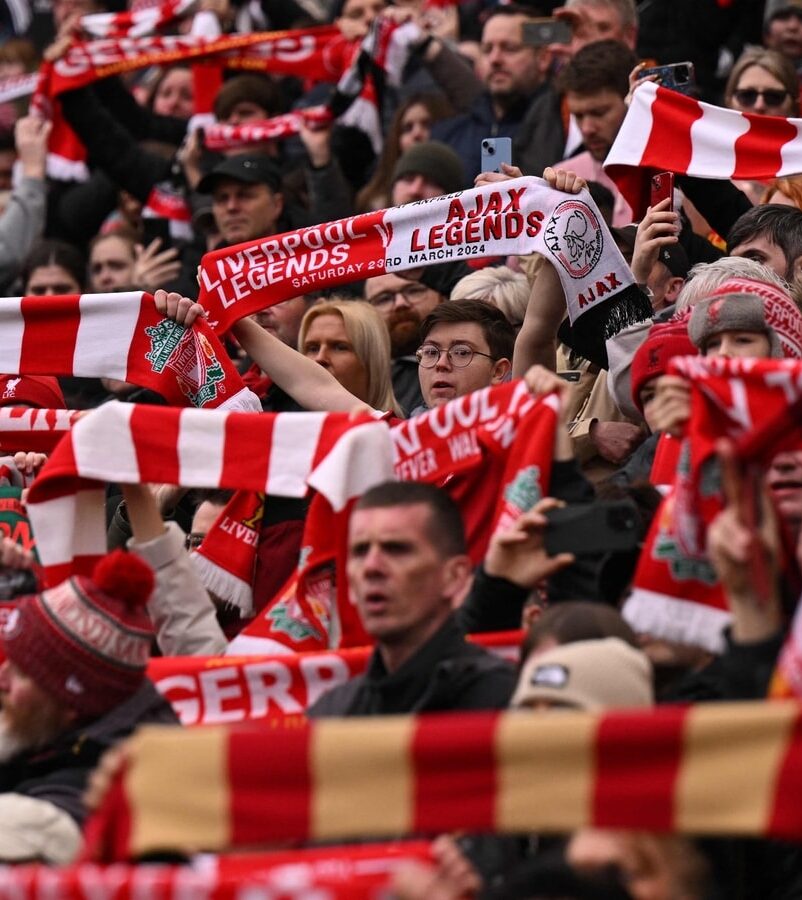
It’s impossible to overstate the devotion that Liverpool fans have to their soon-departing manager, Jurgen Klopp. Picking the team up from mid-table doldrums almost a decade ago, the charismatic German transformed it into champions of England and Europe once again.
The shock announcement that he has decided to leave the club this summer provoked a wave of grief among the Liverpudlians who call themselves a Red. And then, of course, one big question: Who will succeed him?
It will be a human, we can assume. Of all the jobs threatened by artificial intelligence, the role of football manager isn’t yet one of them. But as the 131-year-old club looks for its next manager, it has also been quietly helping researchers at Google’s DeepMind AI unit work on a revolutionary project: an AI that can inform and enhance a team’s tactics on the field. Early results show great potential, raising profound questions about how much technology should be allowed to seep into the world’s favorite game.
In a paper published in the journal Nature, first reported on by the Financial Times, researchers described how the club had helped Google’s team build a system that could suggest better ways for an attacking team to organize itself for a corner kick to increase the likelihood of scoring.
Developed over the course of the last three years, it is not known whether TacticAI has been utilized by Liverpool for help preparing for a real match. But, researchers say, human experts at the club(1) agreed with 90% of the system’s suggestions on how to best reposition players to improve the likelihood of scoring.
Also read: US lawsuit against Apple could make iPhone experience more consumer-friendly | Explained
The system was trained on an analysis of 7,176 corner kicks taken in the Premier League between 2020 and 2023, taking into account where players were positioned as well as their weights and heights. From this data, the system could predict which player would most likely receive the ball first with roughly the same accuracy as a human coach — and it will only become smarter.
Of course, nobody is suggesting replacing Klopp with a computer (though referees sick of his complaining wouldn’t mind that, I’m sure). But these results show that some aspects of coaching can be enhanced with cutting-edge technology — and teams, already swimming in data about their players’ performance, will undoubtedly seek to use it.
If AI can provide even a marginal improvement, it could be enough to decide championships. A typical Premier League match will usually see around 10 or so corner kicks, and they’re regarded as a prime scoring opportunity, even though, statistically speaking, they rarely result in a goal. Liverpool scored just 12 goals from its 235 corner kicks last season, according to sports data group Opta.
Consider Liverpool’s recent 1-1 draw with fellow English Premier League title hopeful Manchester City. Liverpool were unable to make any of its seven corners result in a goal, but City’s one breakthrough came from a clever corner routine that caught the league’s second-most secure defense off guard. In celebration, City manager Pep Guardiola gestured toward his set-piece coach on the bench — clearly they had done their homework.
Should AI be allowed to help with those preparations? To give teams ideas they might not otherwise have had? It’s a difficult question and one that might divide fans. Data analysis already plays a key role in football at most levels of the game, with player movements and condition being tracked in real time, informing team selection, substitutions and more.
Also read: Total solar eclipse 2024 – a celestial spectacle: What to expect, where and when
Of course, coaches have always picked their lineups based on their opponents’ style and weaknesses, even before the era of big data. Goalkeepers, when facing a penalty kick, will know which side of the goal a team’s penalty taker prefers to aim his shot. Set pieces are rehearsed during training. And so on.
These techniques were traditionally informed by insight from coaches and scouts who would watch opponents’ matches ahead of time. Today, teams also employ teams of data analysts and scientists to inform their strategy as well as other decisions such as which players might be worth acquiring. The reason Google could analyze so much corner kick data was because clubs collect it already. Like baseball, which had its famous “Moneyball” moment, it has long been accepted in football that tactical instinct and physical prowess can’t succeed on their own. The reverse is of course also true: no amount of data or computing power could ever replace the fundamental determinants of a winning team. Players still need to read the game, control the ball and keep their heads together.
Still, just as scientists believe AI can invent new drugs, the introduction of AI might give rise to new formations and play styles a human may never have come up with.
Does this matter? Visionary coaches have always upended the way football is played by trying something new, whether it was the Netherlands’ “Total Football” style — where players’ positions were fluid — or the more recent “Gegenpresse,” an intense high-pressure technique perfected by Klopp’s teams.
Yet football fans, who can be a conservative sort, might scoff at a new philosophy introduced by AI rather than a visionary coach. Unorthodox play could uglify the beautiful game — or improve it.
These are early days, and the technology is still primitive. Corner kicks were chosen for the research because they are one of the few structured moments within the game — open play will be far more difficult to deconstruct. When I spoke to DeepMind’s researchers this week, they cautioned that while they can analyze data from a lot of football matches, it’s a minuscule sample compared with the trillions of data points that go into making a tool like ChatGPT.
But already it might be time for governing bodies such as FIFA to draw clear lines: Should teams be allowed to make AI-powered decisions in real time? Should AI insights be communicated directly to players on the field, and how? How do we make sure teams that can afford expensive computing power don’t gain an unfair advantage over those that can’t?
Football may never be the same again.
(1) The experts, already employed by Liverpool, were three data scientists, one video analyst and a coaching assistant.
Dave Lee is Bloomberg Opinion’s US technology columnist. He was previously a correspondent for the Financial Times and BBC News.



